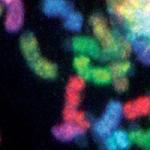
Jason Wong, S.M., Sc.D.
Investigator
Laboratory of Genomic Instability and Cardiopulmonary Outcomes
NHLBI
Research Topics
Chronic lung and cardiovascular diseases (CVDs) are consistently among the leading causes of morbidity and mortality in the United States. There is limited understanding of the pathobiological mechanisms underlying how chemical compounds in the air and everyday consumer products influence lung disease and CVD onset. To address these knowledge gaps, Dr. Wong leads epidemiologic studies to understand how these exposures -originating in the home, community, and workplace- influence the risk of chronic lung diseases and CVDs through pathways involving changes to our DNA. Dr. Wong is focused on identifying novel omics biomarkers that capture in unison environmental exposures, disease risk, and genomic instability. These candidate biomarkers include somatic chromosomal mosaicisms, DNA methylation, Alu retroelement insertions, telomere length, and others, which can be directly measured in easily accessible biospecimens or statistically predicted using advanced algorithms.
To gain etiologic and mechanistic insight, his dry laboratory uses cutting-edge multiomic methods in observational mega cohorts, as well as repeated-measures, case-control, and cross-sectional studies in the United States. Dr. Wong’s ultimate scientific goal is to support chronic disease prevention efforts to reduce morbidity and mortality, by aiding in the identification of high-risk groups that might benefit from early targeted intervention.
Biography
Dr. Jason Wong earned his dual-doctorate in epidemiology and environmental health from the Harvard T.H. Chan School of Public Health in Boston, Massachusetts. He later became a postdoctoral fellow at the Stanford University School of Medicine, where he examined the chronic health effects of secondhand smoke as well as sex hormones in a multi-ethnic study of U.S. women. Prior to joining ECHB, Dr. Wong was a research fellow at the Division of Cancer Epidemiology and Genetics, National Cancer Institute, where he investigated the influence of occupational and environmental exposure to air pollutants on various biomarkers of genomic instability, as well as identifying risk factors for lung cancer among special populations in the U.S., Europe, and East Asia.
Selected Publications
- Wong JYY, Cawthon R, Hu W, Ezennia S, Gadalla SM, Breeze C, Blechter B, Freedman ND, Huang WY, Hosgood HD, Seow WJ, Bassig BA, Rahman ML, Hayes RB, Rothman N, Lan Q. Alu Retroelement Copy Number and Lung Cancer Risk in the Prospective Prostate, Lung, Colorectal, and Ovarian Cancer Screening Trial. Chest. 2022;162(4):942-945.
- Lim J, Hashemian M, Blechter B, Roger VL, Wong JYY. Pre-diagnostic free androgen and estradiol levels influence heart failure risk in both women and men: A prospective cohort study in the UK Biobank. Eur J Heart Fail. 2024;26(3):540-550.
- Wong JYY, Blechter B, Liu Z, Shi J, Roger VL. Genetic susceptibility to chronic diseases leads to heart failure among Europeans: the influence of leukocyte telomere length. Hum Mol Genet. 2024;33(14):1262-1272.
- Wong JYY, Shu XO, Hu W, Blechter B, Shi J, Wang K, Cawthon R, Cai Q, Yang G, Rahman ML, Ji BT, Gao Y, Zheng W, Rothman N, Lan Q. Associations between Longer Leukocyte Telomere Length and Increased Lung Cancer Risk among Never Smokers in Urban China. Cancer Epidemiol Biomarkers Prev. 2023;32(12):1734-1737.
- Lim J, Hubbard AK, Blechter B, Shi J, Zhou W, Loftfield E, Machiela MJ, Wong JYY. Associations Between Mosaic Loss of Sex Chromosomes and Incident Hospitalization for Atrial Fibrillation in the United Kingdom. J Am Heart Assoc. 2024;13(22):e036984.
Related Scientific Focus Areas
This page was last updated on Thursday, August 21, 2025



